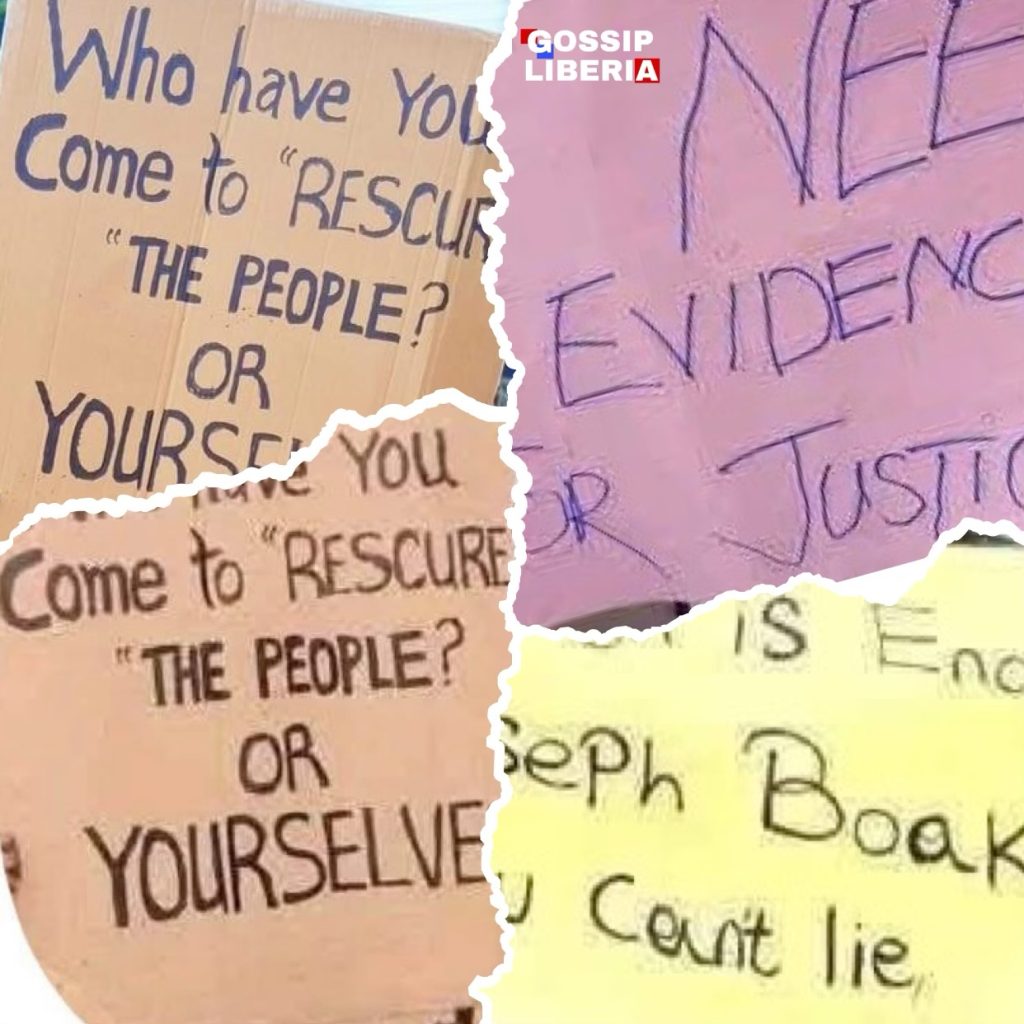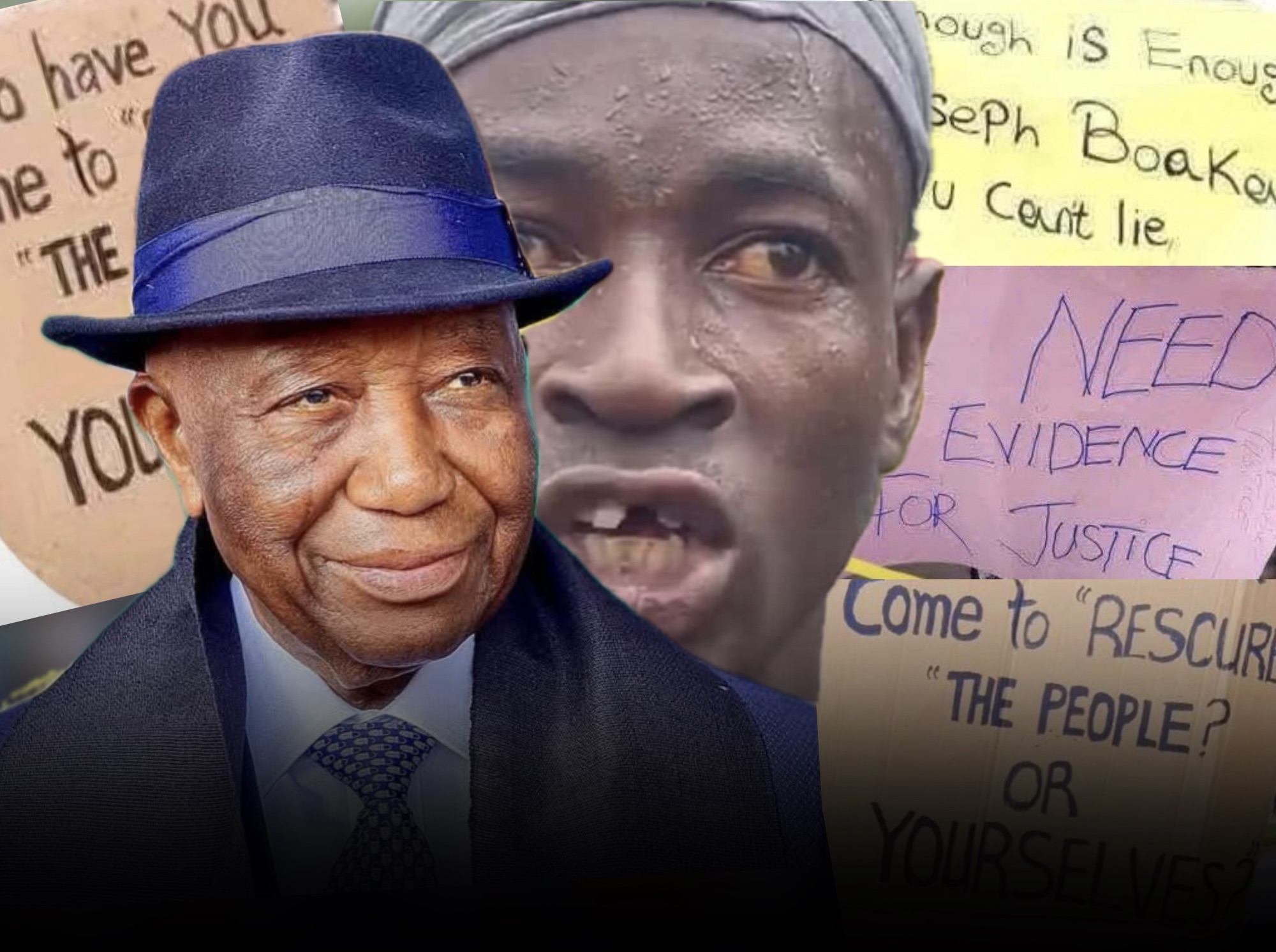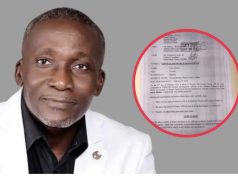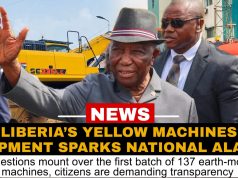Thousands flood Monrovia streets on July 17 in peaceful protest led by STAND, calling out corruption, police brutality, and failing services while President Boakai remains absent, drawing public outrage.
After nearly four months of planning, July 17 marked a significant turning point in Liberia’s political atmosphere. Thousands of Liberians gathered in Monrovia to join a peaceful protest organized by the civil rights group STAND (Solidarity and Trust for a New Day), expressing growing dissatisfaction with President Joseph Boakai’s administration.
Since taking office in January 2024, President Boakai’s government – widely marketed as a “Rescue Mission” – has faced mounting criticism for its handling of key national issues. Protesters, many of whom supported Boakai’s rise to power, say they now feel betrayed. Their grievances stem from what they describe as a total disconnect between the government and the people, with widespread suffering and neglect becoming the new norm.
Among the most pressing concerns voiced during the protest were the alarming rise in rape cases, with over 2,700 cases reported between 2024 and 2025, a failing healthcare system that has led to preventable deaths due to poor treatment and wrong medication, rampant police brutality resulting in deaths, and the lack of accountability in government, including the discontinuation of asset declarations by public officials.
Despite being in the country and not on official travel, President Boakai did not attend the protest or receive the petition personally. Instead, he chose to attend the Liberia Investment Conference at the Ellen Johnson Ministerial Complex. His absence, along with remarks seen as dismissive or mocking—especially his references to placards like “President Boakai can’t lie” and a young protester’s statement about no longer being able to “sell drugs”—have only deepened public frustration. Many Liberians see this as a failure in leadership, with the president ignoring the cries of the very people who once believed in his promise to rescue the nation.

STAND, which spearheaded the protest, laid out several critical demands:
1. End to corruption and impunity – Protesters denounced government inaction on corruption and a justice system perceived as selective.
2. Economic hardship – They highlighted increasing poverty, youth unemployment, and rising costs of living without any relief from the government.
3. Collapse of healthcare services – Clinics and hospitals are reportedly short on staff, equipment, and basic medications, leading to deaths and mistreatment.
4. Police brutality and insecurity – Civilians, especially motorcyclists and vendors, are allegedly facing harassment, violence, and unlawful killings by law enforcement.
5. Judicial overreach – Courts are seen as being used to silence dissent and legitimize political maneuvers.
6. Land rights violations – Forced demolitions and land grabs are affecting the urban poor and rural communities.
7. Lack of accountability – Citizens lament the failure of public officials to fulfill campaign promises or be held accountable.
8. The abduction case of Ibrahim Khalil Cherif – The alleged illegal rendition of a foreign national without due process remains unresolved.
The protest, branded “The Day of the People,” was a day campaign that included a memorial parade and a peace caravan across Monrovia. It was largely peaceful, despite tight security and roadblocks around government installations. The turnout shocked even veteran observers, with thousands taking part across different counties, carrying placards and chanting for justice, reform, and transparency.
While the demonstration ended without violence, the message was clear: Liberians are demanding real change. STAND’s chairman issued a 14-day ultimatum for the government to respond to their demands or face renewed and more extensive protests. The group has warned that if the administration continues to ignore the people’s voice, the next demonstration will be even more widespread and disruptive.
As the clock ticks, Liberians are watching closely to see whether their leaders will respond with humility and action – or continue down a path of silence and detachment. One thing is certain: the July 17 protest has awakened a new wave of civic consciousness and unity, and the people are no longer willing to wait in silence.






